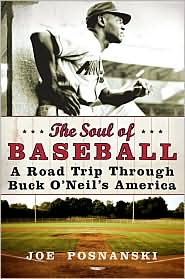
A Lost post wth No Specific Spoilers
I've never seen Nip/Tuck but I've spent about 15 minutes reading about it on various wikipedia pages, and the impression I got (correct me if I'm wrong Nip/Tuck fans - I may be) is that basically each season got more ridiculous than the one before - the plot was more fantastic, insane and the level of realism lower. I'm not sure if this is exacty right, and I'm not sure whether that makes the later seasons of Nip/Tuck a more or less pleasurable viewing experience, and I'm not sure how serial Nip/Tuck is between seasons - what I'm interested is in comparing that model to Lost.
Lost seems to feel that it needs to increase its scope every season, make it's plot more epic - more going on, people with random powers - giant battles of control for the island over space, time and space-time. Watching Lost's first season would be unrecognizable to someone now following it - they're just on an island fighting amongst themselves and trying to get food. Though I haven't tried yet so I can't say for sure, I would guess this might impact it's rewatch value - it's hard to watch something when you know that the events your seeing are completely insignificant in later events.
Not only that, but Lost seems to want you to think there's a grand plan - from the beginning each and every piece was carefully laid out - and each time a secret is revealed your mind is to be blown - but whenever you think about any one part - one great reveal from an episode - for more than a minute, you realize how many more questions come from that revelation rather than answers - things haven't been cleared up or come together, but have been made more muddy - more things that the creators now have to find a way to weave together later on.
The other thing is normally in a show like this, part of the fun could be trying to guess what's going to happen next, but the thing is in this show it's impossible - the answer to the current problem is something you never could have guessed because it's not something that had previously been in the parameters of the show - time travel for example, or random immortality, or ability to morph, or ability to talk to dead people, or I'm sure if I thought hard I could think of tons of random new and different supernatural things that you would never have guessed at come the humble beginnings of the series.
The point is not that shows should eschew the supernatural - the point is that shows should be consistent in their scope - you should know what level of supernatural you're dealing with and what can you reasonably expect. Watching Buffy the Vampire Slayer, from the first couple episodes you know some basic things about vampires and demons, and they remain true during the entire series. Essentially there are no guns in Buffy, so when there is one (and there's only one really of any importa as far as I remember) it's a huge deal. I'm sure there are other good examples of shows like this too. Hell, even Battlestar Galactica, for all of my occasional problems with it, you pretty much believe that it's plausible within the fabric of the show most of the things they throw at you (with the exception of a specific one or two, but that's for another discussion).
The point is Lost changes what it is as a show every season, and expands to the point at which not only is it not really the same show, not only does it not really make any internal sense, but the things going on keep expanding past the parameters it had set for itself previously - this may make things temporarily surprising, but when you look back at it it makes the show work worse. Anyway, I probably have more things to say about Lost, including maybe the occasion things it gets right, or the more specific things it gets wrong in the Season 5 final, but that's for another time.








